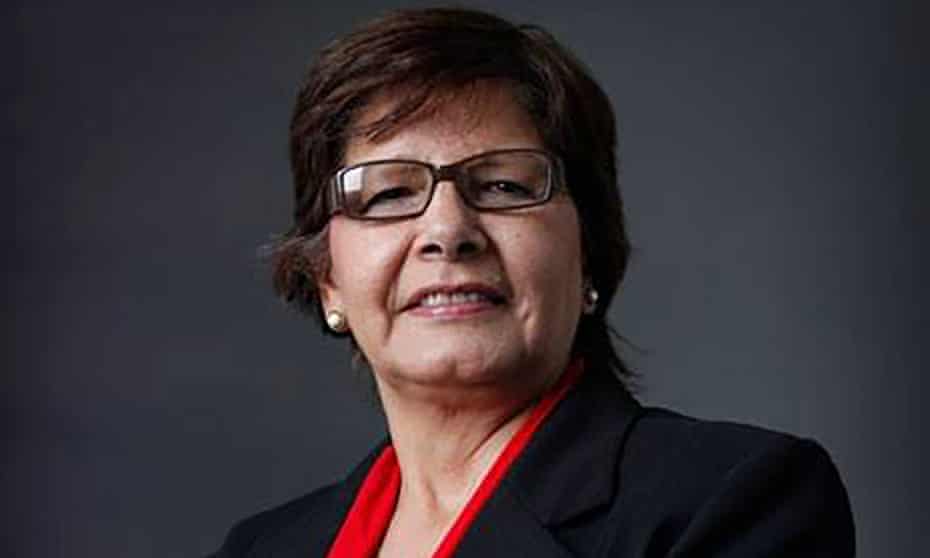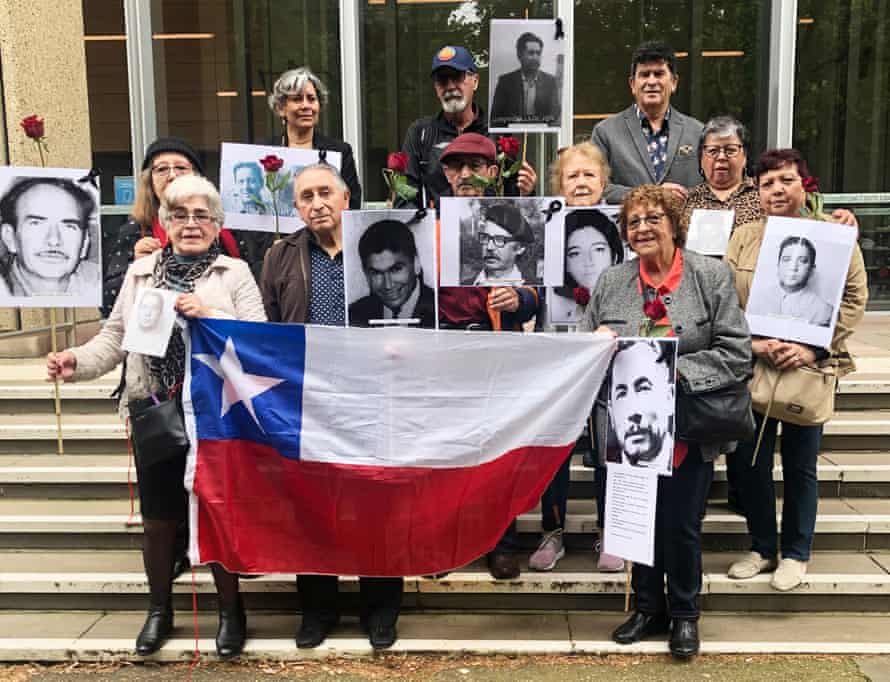AUSTRALIA/CHILE: Adriana Rivas is fighting extradition from Australia.
Adriana Rivas is facing seven counts of aggravated kidnapping relating to the disappearance, and presumed murder, of Chile communist party members

Former Sydney nanny Adriana Rivas has lost another appeal against her extradition to Chile to face charges of aggravated kidnapping, allegedly committed during the reign of military dictator Augusto Pinochet.
Rivas is facing seven counts of aggravated kidnapping relating to the disappearance, and presumed murder, of seven members of Chile’s communist party, including its leader, Victor Diaz, who disappeared in 1976.
Chilean authorities allege Rivas was a member of the shadowy Lautaro Brigade and involved in the torture and disappearance of political opponents of the Pinochet dictatorship.
Rivas’s legal team has fought her extradition for more than two years, arguing the allegations against her were “political” and therefore not extraditable.
In October 2020, a Sydney magistrate ruled Rivas was eligible for extradition, a decision affirmed by a federal court judge in June 2021.
Rivas appealed to the full bench of the federal court which, on Wednesday, also ruled she was eligible to be extradited.
Justices Debra Mortimer, Robert Bromwich and Stewart Anderson said many of Rivas’s 17 grounds of appeal were irrelevant, in arguing the merits of the offences alleged against her.
“Guilt or innocence forms no part of the international extradition process”, the justices said, “that will be a matter for the Chilean courts”.
The Australian courts were required only to assess the validity of the extradition request.
“The appellant is eligible for surrender.”

Rivas’s lawyer Frank Santisi had argued Australian magistrates had failed to consider Chile’s 1978 Amnesty Law, enacted by decree by Pinochet to shield those suspected of committing human rights abuses. He argued the law “exists in Chile and there has been no act of parliament to remove it”.
“What is happening in Chile is legally incorrect and Australia has the right not to act in the extradition request,” Santisi said.
The argument was rejected by the bench.
In 1998 Chile’s Supreme Court ruled the Amnesty Law should not apply to cases of human rights violations.
Members of Pinochet’s administration, including members in the Lautaro Brigade, have been prosecuted, convicted and jailed, and Chilean prosecutors have used evidence from those matters to seek Rivas’s extradition.
Rivas can still appeal to Australia’s high court, but must be granted leave by the court to do so. Rivas can also make submissions against her extradition to the commonwealth attorney-general, who will make the final decision on whether she should be surrendered to Chile.
- Rivas has been living in Australia since 1978. She was living in the Sydney beachside suburb of Bondi, working as a nanny and a cleaner, before her arrest in February 2019. She had previously been arrested during a return visit to Chile but escaped and fled back to Australia.
The families of the seven victims of Rivas’s alleged offences said her escape from Chile while on bail should be considered an aggravating factor if she is found guilty.
“We demand that once she is extradited to Chile, Rivas remains in custody while the trial takes place and we hope the outcome will be an exemplary sentence given her conduct.”
In Sydney, supporters of the families and members of Chile’s diaspora staged a vigil on the steps of the federal court.
Rivas has consistently denied the allegations and maintained her duties within the National Intelligence Directorate, known by its Spanish acronym Dina, were purely administrative.
But court documents from Chile’s appeal court provided to Australian courts as part of the extradition proceedings allege Rivas worked as an agent of Dina’s Lautaro Brigade after taking a course in intelligence.
A minute from Chile’s interior ministry, cited in a 2020 magistrates court decision in the case, says the brigade was established to target members of the communist party which opposed Pinochet’s military regime.
A Chilean police report, cited in the same judgement, alleges Rivas was a brigade member involved in the commission of “forced entries, detention, interrogations and application of torture”, all of which she denies.
The report states the brigade used metal bunk beds rigged with electrical current and detainees were repeatedly shocked all over their bodies.
Chile’s interior ministry wrote in court documents: “The premises were even used to develop advanced killing techniques such as the preparation of sarin gas.
“They had a team of medical doctors checking the health condition of prisoners to decide if they could still stand torture. Dead bodies were burnt [on] their fingerprints and face with a welding torch; this was done inside the empty swimming pool. Then, the bodies were put inside sacks, tied-up with cables to a piece of railway beam and then thrown into the ocean by air force helicopters.”
In 2013, as part of a documentary series marking 40 years since Pinochet’s ascension to power in a coup, Rivas granted an interview to SBS television.
She said she had worked at the brigade’s headquarters but was not involved in interrogating detainees.
“Not guilty. Not guilty. If I ... look, I never had the opportunity to be where the detainees were. Never, understand? All my work was as a secretary or security. Nothing more.”
In the same interview, she confirmed the use of torture against opponents of the regime. “Everyone knew they had to do that to the people in order to break them because communists would not talk. It was necessary,” Rivas said.

Comentarios
Publicar un comentario